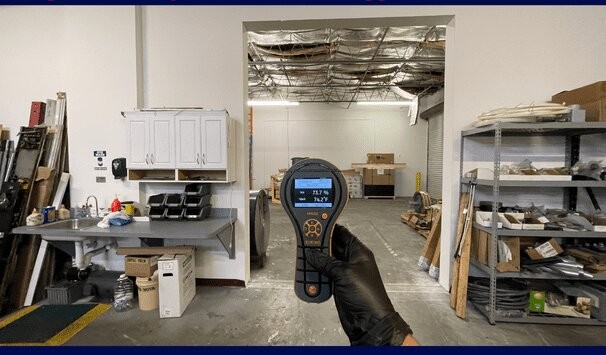Preventing Mold Growth in Commercial Facilities: Essential Strategies for Maintaining a Healthy Environment
Preventing mold growth in commercial facilities is important for maintaining structural integrity, occupant health, and uninterrupted business operations. Unchecked mold can lead to property damage, health issues, and expensive remediation efforts. A proactive strategy focusing on early detection, moisture control, and ongoing maintenance is recommended. Below are methods for preventing mold growth in commercial buildings. Take a look at CDC.Gov for more info about health issues related to Mold.
Conduct Regular Inspections
Routine inspections form the basis of mold prevention. Identifying issues early allows for timely resolution before they become major problems. During inspections, check for:
Water stains on ceilings and walls
Condensation on pipes and windows
Musty odors in enclosed or damp areas
Early identification of moisture problems can significantly reduce the need for professional mold remediation.
Address Water Leaks Promptly
Mold grows in moist environments. Undetected leaks—from even small sources—can create ideal conditions for growth. Regularly check for and promptly repair:
Leaking roofs
Dripping pipes or faucets
HVAC condensation and drain line clogs
Timely action is key to preventing mold establishment in your facility. See FEMA.Gov for additional resources
Control Indoor Humidity Levels
Humidity plays a significant role in mold development. Keeping indoor humidity below 60% is essential. Recommended humidity control methods include:
Installing dehumidifiers in moisture-prone areas
Using ventilation fans in restrooms and kitchens
Incorporating moisture-absorbing materials during construction
Effective humidity control simplifies the management of mold prevention in commercial facilities.
Maintain HVAC Systems
A well-maintained HVAC system helps control both temperature and humidity while also filtering airborne mold spores. Best practices include:
Scheduling regular HVAC inspections and cleanings
Replacing air filters on a set schedule
Ensuring condensate drains are functioning properly
These steps help prevent the system from circulating mold spores and minimize indoor moisture levels.
Improve Building Ventilation
Insufficient ventilation traps moisture, especially in high-traffic or low-use areas. Improving airflow is an effective way to prevent mold. Ensure:
Exhaust fans are operating in bathrooms and kitchens
Storage rooms and basements are well ventilated
Window and door seals do not block airflow
Good ventilation helps maintain a dry environment resistant to mold.
Use Mold-Resistant Building Materials
When constructing or renovating a commercial space, choosing appropriate materials is crucial for long-term mold prevention. Consider using:
Mold-resistant drywall
Anti-microbial paints and coatings
Moisture-resistant insulation
These materials create barriers that inhibit mold growth, reducing the likelihood of future infestations.
Establish a Preventative Maintenance Plan
A comprehensive maintenance plan is essential for preventing mold growth in commercial facilities. The plan should include:
Regular moisture and leak checks
Scheduled inspections by mold professionals
Rapid response protocols for water incidents
A proactive maintenance strategy prevents small issues from escalating into large-scale remediation projects.
Educate Employees and Tenants
Staff and tenants play a significant role in maintaining a mold-free facility. Educate them on how to contribute to mold prevention. Encourage them to:
Immediately report water leaks or visible mold
Keep personal and common areas dry and clean
Avoid blocking vents and air returns
Informed occupants contribute to early detection and prevention efforts.
Implement a Water Damage Response Plan
Unexpected water damage poses a significant risk for mold. A well-designed response plan minimizes that risk. Ensure the plan includes:
Fast containment and drying procedures
Contact information for emergency repair teams
Guidelines for assessing and documenting damage
A swift and organized response helps prevent mold colonization after a water incident.
Work with Professional Mold Specialists
While preventative steps are crucial, regular consultation with mold experts adds another layer of protection. Professional mold remediation contractors can:
Detect hidden mold and moisture sources
Offer long-term prevention advice
Provide treatment when necessary, before issues become widespread
Their expertise is valuable for ensuring commercial facilities remain mold-free.
Consult Mold Experts USA
At Mold Experts USA, we specialize in preventing mold growth in commercial facilities using advanced, non-invasive technology and proactive strategies. Whether you need a consultation, inspection, or full mold prevention plan, we are available to assist in keeping your building safe, dry, and compliant. Check out our Commercial Mold Remediation page or our FAQ page for more information
Contact us today for expert mold prevention services tailored to your facility’s needs.


